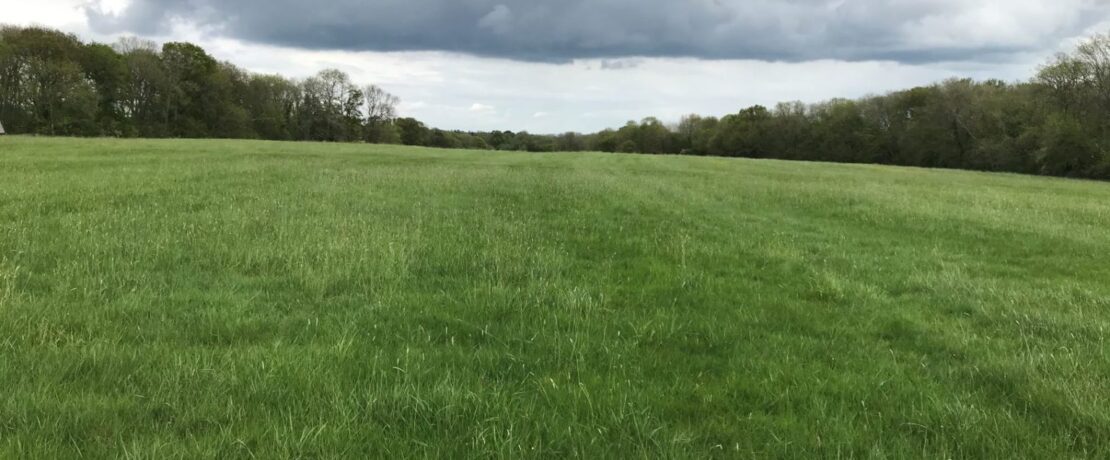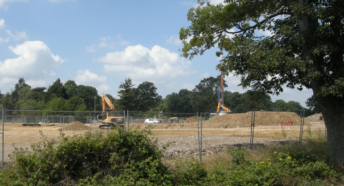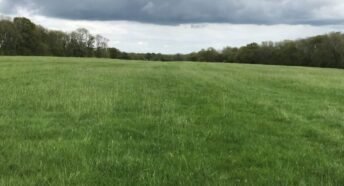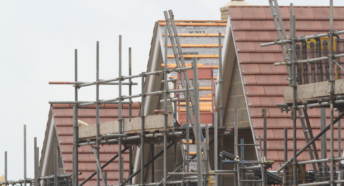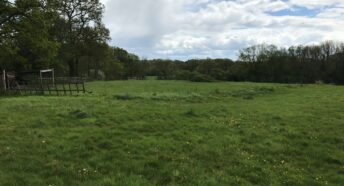Beauty not betrayed
Decision has significant and positive implications for the protection of Areas of Outstanding Natural Beauty
On Maundy Thursday, Michael Gove, Secretary of State for Levelling Up, Housing and Communities, announced a decision that has significant and positive implications for the protection of Areas of Outstanding Natural Beauty from development. We are delighted with this outcome.
CPRE Kent played a full part throughout the process in opposing the development, which was to be an estate of 165 homes on greenfield land at Turnden, a former farmstead outside Cranbrook, in the High Weald AONB.
We worked closely with a local action group, who shared our view that this development would be contrary to planning law and policy and harmful to the protected landscape.
Both Natural England and the High Weald AONB strongly opposed the development. NE made clear that it would ask the Secretary of State to call in the application for his decision if Tunbridge Wells Borough Council had been inclined to approve it. When the council’s planning committee voted, by a majority, to grant permission, we joined the call-in request, which was duly granted.
The inspector’s inquiry that followed was long and arduous, with many expert witnesses called by the developer, Berkeley Homes (Eastern Counties) Ltd, the council, NE and the High Weald AONB, all of whom produced lengthy reports, followed by an 18-day online hearing.
We sought to supplement the cases put forward by NE and the High Weald AONB, providing evidence on areas they were unable to cover, challenging expert witnesses on key issues and providing the local community with the opportunity to have their voices heard in the inquiry.
The inspector’s report went to the Secretary of State in April 2022 and nothing was heard for 12 months, until the decision was announced. It transpired that the inspector had recommended that permission be granted but the Secretary of State disagreed and refused permission.
The inspector considered there were exceptional circumstances justifying this major development and that granting permission would be in the public interest. The Secretary of State’s view differed from the inspector’s on several important counts. Notably, the inspector thought the design of the development was of a high standard, with thoughtful regard to its context, but the Secretary of State considered that:
“… the layout of the scheme does not respond to its AONB setting. Rather than being a benefit of the scheme, as suggested by the inspector, the Secretary of State considers that the design of the scheme is a neutral factor in the context of paragraphs 176 and 177 of the Framework and the planning balance.”
He attached greater weight to the scheme conflicting with current site allocation policies and considered that the weight of the scheme’s benefits was substantial but not exceptional. He thought the case for a development of this type in Cranbrook was “not very compelling”.
As paragraph 177 of the Framework provided a clear reason for refusing permission, the presumption in favour of sustainable development under paragraph 11(d)(i) of the Framework (which could have applied, as Tunbridge Wells had a slight shortfall in its five-year housing supply) was not engaged.
We had no doubt, from the resources that Berkeley devoted to this application, that it regarded it as a potentially important precedent. This was borne out by an article that appeared in The Times on Saturday, April 15, (Builders lambast Gove after he blocks plan for ‘generic’ homes) and set out the building industry’s concerns about the implications of the decision for achieving the government’s housing targets.
We have written to the newspaper, explaining why we consider that the decision was quite correct, in upholding the protection provided to AONBs by the National Planning Policy Framework.
